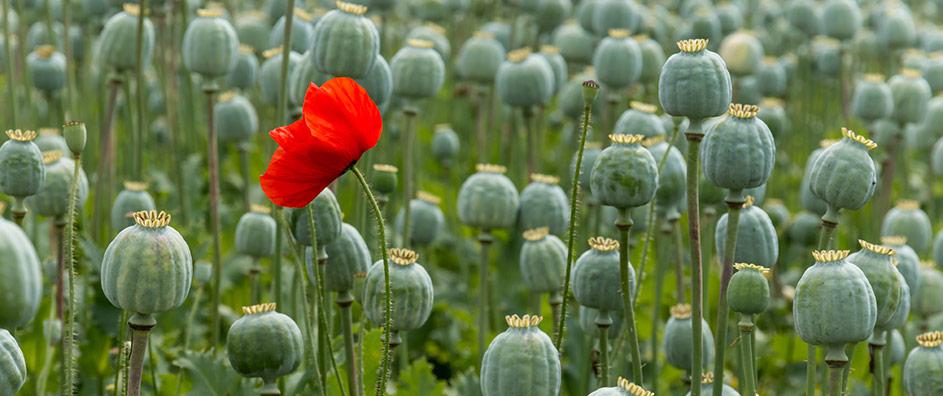The Baha’i teachings encompass a myriad of themes and insights that resonate deeply with contemporary societal issues. Among these themes, the subject of opium, often referred to as “this most powerful of plagues,” emerges as a poignant focal point. Understanding the historical and social context surrounding opium can illuminate not only its pharmacological effects but also the broader implications of addiction, societal decay, and the quest for spiritual fulfillment.
Opium, derived from the opium poppy, has been utilized for centuries, with its roots tracing back to ancient civilizations. However, as a substance, opium possesses a dual nature: it offers pain relief and induces tranquility, yet it simultaneously harbors the potential for addiction and societal ruin. The Baha’i perspective urges followers to scrutinize the fascination surrounding this substance, suggesting that it is emblematic of deeper societal maladies and a quest for meaning amidst existential despair.
Initially, one must explore the allure of opium—a substance that evokes both temptation and repulsion. The initial euphoric sensations that accompany its use can act as a siren call, luring individuals away from the harsh realities of their existence. Society often romanticizes the idea of escapism, where an individual seeks refuge from the tumult of daily life. Such tendencies highlight a fundamental human inclination: the pursuit of solace and the desire to transcend the banalities of existence. The Baha’i teachings emphasize that this intrinsic longing can lead individuals to seek understanding and fulfillment in more sustainable ways than through substances.
Moreover, the sociocultural implications of opium use cannot be overlooked. In various societies, opium has not only been a substance of leisure but also a means of social bonding. Gatherings and communal rituals involving opium can illustrate the ways in which the drug weaves itself into the fabric of culture. However, the Baha’i teachings caution against such practices that normalize dependency. The temporary camaraderie and euphoria may come at the cost of long-term devastation, highlighting an ironic paradox of connection borne from disconnection.
This notion of connection versus disconnection dovetails into the heart of how addiction, particularly to opiates, reflects more profound existential crises. An individual’s reliance on opium can signify a deeper yearning for belonging, purpose, and identity, often unfulfilled in their immediate realities. The Baha’i Faith advocates for a life grounded in spiritual principles, which offers an alternative to the ephemeral pleasures found in substance use. This spiritual framework delineates paths toward personal and collective growth, emphasizing the importance of fostering genuine relationships and societal infrastructure that nurture human potential.
The historical trajectories of opium trade and its socio-economic impacts further underscore why this topic remains ever-relevant. The opium trade has sown seeds of conflict and moral quandary, leading to systemic injustices that have affected countless lives. The Baha’i teachings, which stress the importance of justice and equity, challenge followers to confront the ramifications of such trades critically. The intricate web of exploitation tied to opium serves as a microcosm for broader societal issues, necessitating a critical examination of moral choices within the collective human experience.
In our contemporary context, the opioid crisis illustrates how the fascination with and dependency on both legal and illegal opiates can precipitate national health emergencies. The Baha’i perspective on this issue is one of compassion and understanding—recognizing that addiction stems from complex interplays of psychological, social, and economic factors. Resisting the impulse to simplify the narrative reduces the complexity of human experience; rather, it invites a discourse on prevention and rehabilitation that centers on community and unity. The Baha’i teachings encourage a holistic view of such crises, advocating for initiatives that prioritize spiritual healing alongside medical intervention.
Ultimately, the conversation surrounding opium and its consequences serves as a clarion call for humane and conscientious approaches to addiction—a plea for understanding that transcends mere substance use. The Baha’i Faith promotes principles of moderation, spirituality, and constructive engagement, providing a framework through which individuals can explore their motives and inclinations. Rather than succumbing to the lure of opium and its intoxicating embrace, adherents are urged to seek deeper connections within themselves and their communities.
In conclusion, the exploration of opium as “this most powerful of plagues” within the context of Baha’i teachings compels a nuanced understanding of addiction, its causes, and its societal impacts. By fostering conversations that delve into the human condition, the teachings illuminate pathways toward a more profound sense of purpose, community, and fulfillment. Thus, the challenge remains: to redefine our relationships with substances and seek engagement grounded in spiritual and ethical frameworks that honor the sanctity of life and human potential.
